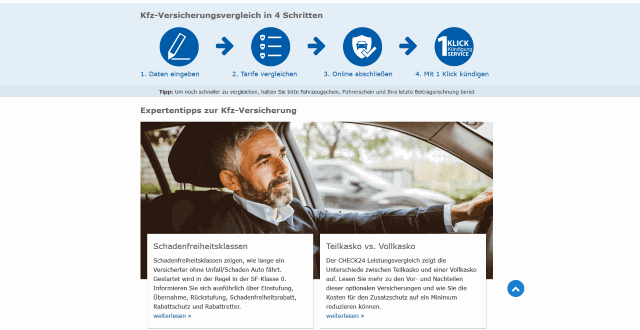SR-22 Insurance Quotes: Your Guide to Finding Affordable High-Risk Coverage
Navigating the path to auto insurance after a major driving violation or license suspension can be complicated, especially when you are mandated by the state to obtain an SR-22 Certificate of Financial Responsibility. The SR-22 is not an insurance policy itself, but a legally required document that proves you meet your state's minimum liability coverage. Unfortunately, this requirement often places drivers into a "high-risk" pool, leading to significant rate increases that can be frustrating and difficult to afford. This comprehensive guide will break down exactly what an SR-22 is, how to fulfill this legal requirement, and most importantly, how to compare quotes from multiple specialized carriers to find the most affordable coverage available for your specific situation. Do not settle for the first quote you receive; comparison is the only path to real savings in this mandatory high-risk category.

SR-22 insurance is not actually a type of insurance policy but rather a certificate of financial responsibility that your insurance company files with your state’s Department of Motor Vehicles. This document proves you carry the minimum liability coverage required by law. The SR-22 requirement typically stems from serious driving violations such as DUI convictions, driving without insurance, excessive speeding tickets, or multiple traffic violations within a short period.
SR-22 Filing Requirements by State
Each state has specific requirements for SR-22 filings, though not all states use this particular form. Most states require SR-22 certificates for high-risk drivers, but the duration and specific circumstances vary significantly. Generally, you must maintain SR-22 coverage for three to five years, depending on your state and the severity of your violation. Some states like Delaware, Kentucky, Minnesota, New Mexico, New York, North Carolina, Oklahoma, and Pennsylvania use different forms such as SR-50 or FR-44 certificates instead of SR-22s.
The filing process involves your insurance company electronically submitting the SR-22 form to your state’s DMV on your behalf. Your insurer will typically charge a one-time filing fee ranging from $15 to $50 for this service. If you move to a different state during your SR-22 period, you may need to obtain a new certificate that complies with your new state’s requirements.
Cheapest SR-22 Insurance Companies
Finding affordable SR-22 coverage requires comparing quotes from multiple insurers, as rates can vary dramatically between companies. Some insurers specialize in high-risk coverage and may offer more competitive rates for drivers with violations. Progressive, GEICO, State Farm, and The General are among the companies that frequently provide SR-22 certificates, though availability varies by state.
When shopping for coverage, consider factors beyond just the premium cost. Look for insurers with strong financial ratings, good customer service records, and convenient payment options. Some companies offer discounts for defensive driving courses, multiple policies, or maintaining continuous coverage, which can help offset the higher premiums associated with SR-22 requirements.
Non-Owner SR-22 Insurance Quotes
Non-owner SR-22 insurance serves drivers who need to maintain their SR-22 filing but do not own a vehicle. This coverage provides liability protection when you drive borrowed or rented vehicles. Non-owner policies typically cost significantly less than standard auto insurance because they only provide liability coverage and do not include comprehensive or collision protection.
This type of coverage is particularly useful for individuals who have had their vehicle repossessed, sold their car due to financial hardship, or primarily use public transportation but occasionally drive. Non-owner SR-22 policies help you maintain continuous coverage, which can prevent additional penalties and demonstrate responsibility to insurance companies when you eventually purchase another vehicle.
DUI SR-22 Insurance Cost Increase
DUI convictions typically result in the most significant insurance rate increases among all violations requiring SR-22 filings. Drivers with DUI convictions can expect their insurance premiums to increase by 80% to 150% or more, depending on their state, insurance company, and driving history. The combination of the DUI conviction and the SR-22 requirement places drivers in the highest risk category for insurers.
The financial impact extends beyond just higher premiums. Many insurance companies will not renew policies for drivers with DUI convictions, forcing them to seek coverage from high-risk insurers who typically charge premium rates. Additionally, some states require FR-44 certificates for DUI offenders, which mandate higher liability limits than standard SR-22 requirements, further increasing costs.
| Insurance Company | Average Monthly Premium | SR-22 Filing Fee | Key Features |
|---|---|---|---|
| Progressive | $180-$250 | $25 | Online filing, 24/7 claims service |
| GEICO | $160-$220 | $15 | Military discounts, mobile app |
| The General | $140-$200 | $25 | Specializes in high-risk drivers |
| State Farm | $190-$280 | $25 | Local agent support, good customer service |
| National General | $150-$230 | $30 | Flexible payment options |
Prices, rates, or cost estimates mentioned in this article are based on the latest available information but may change over time. Independent research is advised before making financial decisions.
How to Cancel SR-22 Filing Early
SR-22 filings cannot typically be cancelled early, as they are mandated by state law for specific time periods. However, some circumstances may allow for early termination, such as moving to a state that does not require SR-22 certificates or successfully appealing your original conviction. The most common way to end your SR-22 requirement is simply waiting for the mandated period to expire.
Once your SR-22 period ends, your insurance company will notify the state that your filing has been cancelled. At this point, you can shop for standard auto insurance rates, which should be significantly lower than your high-risk premiums. However, the underlying violations that triggered your SR-22 requirement may continue to affect your insurance rates for several additional years, depending on your state’s laws and individual insurance company policies.
Maintaining continuous coverage throughout your SR-22 period is crucial for avoiding additional penalties and demonstrating improved responsibility to future insurers. Any lapse in coverage will typically restart your SR-22 clock and may result in additional license suspensions or legal consequences.




